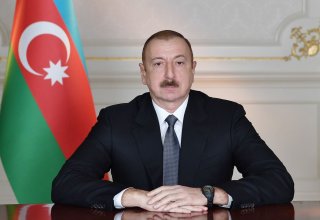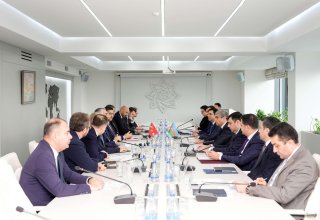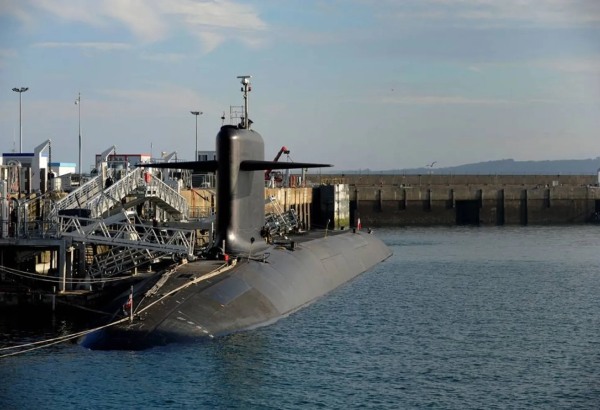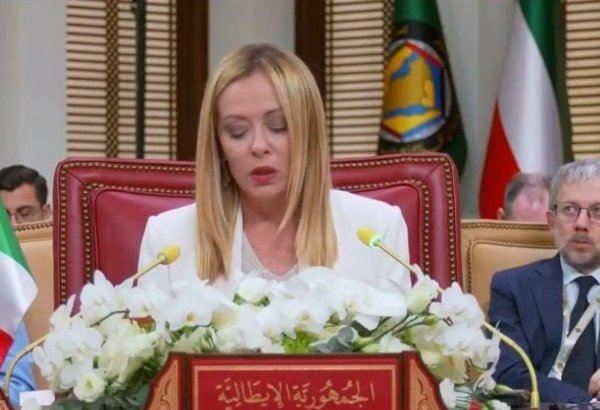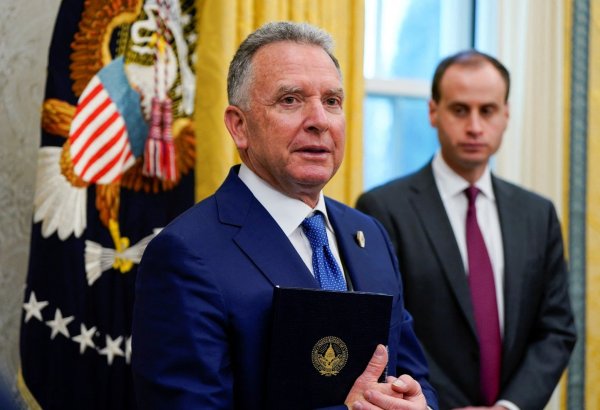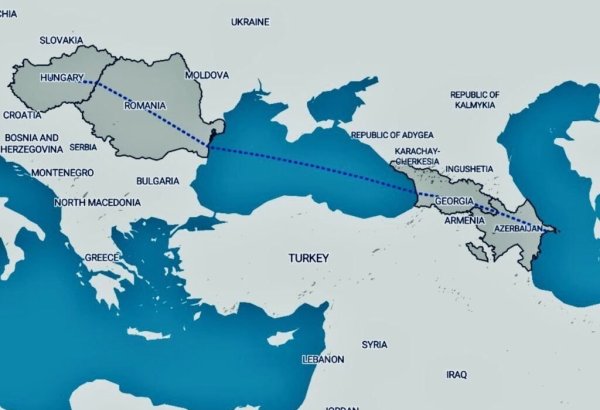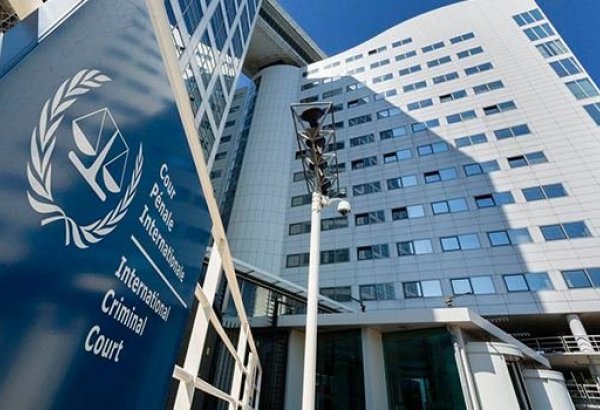BAKU, Azerbaijan, July 9. Azerbaijan plays a key role as a connectivity hub between Europe and Asia, European Commission’s spokesperson Adalbert Jahnz said in an exclusive interview with TurkicWorld.
In this regard, he pointed out that Azerbaijan is indeed a key player in regional coordination efforts along the Middle Corridor.
Jahnz noted that cargo traffic along the Trans-Caspian Transport Corridor has already tripled since it started operations in 2017 and further doubled following the outbreak of war in Ukraine.
"It has the potential to handle more land-based trade between Europe and Asia, if key issues, bottlenecks, capacity shortages and other connectivity issues (including soft connectivity such as customs, border crossings and documentation) are adequately addressed in coordination with all key partners involved. This is what the European Commission is focusing on under the Global Gateway Strategy – to enhance operational efficiency and economic attractiveness of the Trans-Caspian Transport Corridor, based on the results of the EU-funded study on sustainable transport connections between Europe and Central Asia from June 2023," said the spokesperson.
Jahnz noted that this work continues to be done in close consultation with all five Central Asian countries as well as other relevant stakeholders, guided by the EU’s inclusive approach to regional connectivity with a view to support also sustainable economic development of all countries concerned.
"The EU-funded study on sustainable transport connections between Europe and Central Asia identified 33 hard infrastructure investment needs across the region (for example modernisation of existing railways and roads, additional links, fleet expansion, port capacity expansion, rolling stock, logistics centres, warehousing) and seven soft connectivity actions (for example trade facilitation, tariff harmonisation, customs procedures, border controls, interoperability, market liberalisation). These are all specific, concrete, implementable and realistic actions that can contribute to the competitiveness, economic attractiveness and operational efficiency of the Trans-Caspian Transport network and offer opportunities for all the five Central Asian countries to maximise their sustainable economic development by linking up better with each other – and with Europe," said the Commission’s spokesperson.
He stated that the estimated amount of investment required to make the corridor operational is around EUR 18.5 billion for the hard connectivity investments alone.
"Therefore, as Team Europe spirit, the EU involves the European financial institutions but also other international financing institutions, the private sector and like-minded countries in coordination efforts among various potential investors. In January 2024, at the Global Gateway Investors Forum for EU-Central Asia Transport Connectivity, the Commission announced the commitment of €10 billion in support and investments towards sustainable transport connectivity in Central Asia. A dedicated Coordination Platform for the Trans-Caspian Transport Corridor was recently launched, in which the government of Azerbaijan is also participating," said Jahnz.
From early 2025, the EU will finance a Central Asia Transport Programme, currently under preparation, to advance regulatory and legislative reforms, assist with improving soft connectivity aspects in the Corridor, and support acceleration of investments in transport infrastructure. This will be complemented by a Central Asia Prosperity Programme (beginning operations in the second half of 2024), which, among other elements, will strengthen trade facilitation and digitalisation along the Corridor.
The Commission’s spokesperson noted that the EU has already extended its Trans-European Transport networks (TEN-T) to its neighbouring countries in the Western Balkans, Eastern Partnership region (including the South Caucasus) and Türkiye.
"While there are currently no plans to expand the TEN-T network beyond these regions, the European Union is keen to promote sustainable connectivity with Central Asia, in light of its transport infrastructure (TEN-T) policy and to ensure sustainable connections between extended TEN-T and Central Asia. For this reason, the European Commission organised in April 2024 in Brussels an expert level workshop on the TEN-T policy and approach to the Central Asian countries, to share experience and know-how to further facilitate the development of a regional network of connections among the Central Asian countries. Azerbaijan plays of course a key role as a connectivity hub between Europe and Asia. Part of the Trans-Caspian Transport Corridor is also going through Azerbaijan, notably its Port of Baku on the shores of the Caspian Sea but also the Baku-Tbilisi-Kars railway section, which is also part of the jointly agreed TEN-T extension," he said.
Jahnz pointed out that Azerbaijan is indeed a key player in regional coordination efforts along the Middle Corridor, as clearly reflected by the Joint Venture established between Georgia, Azerbaijan, Türkiye and Kazakhstan in 2022.
"The EU’s approach advocates for the establishment of a regional network of connections that encompasses all five Central Asian countries. In this context, the South Caucasus region is actively involved also in the regional coordination efforts led by the EU and involving all five Central Asian countries in view of developing a network of connections that would contribute to wider regional connectivity. Beyond the already agreed TEN-T extension in Azerbaijan and the related ongoing efforts to its implementation, the EU-funded study on sustainable transport connections between Europe and Central Asia from June 2023 opened up new opportunities for cooperation between the EU and all the five Central Asian countries," he said.
As regards the Central Asian region, the spokesperson said the study assessed all possible corridor options and proposed key actions for corridor enhancement based on the same TEN-T principles of strict sustainability criteria, looking at environmental, social, economic, fiscal/debt sustainability as well as political viability of potential routes and projects, in close consultation with a wider range of stakeholders, including not only the Central Asian countries themselves, but also Member States and other regional partners, private sector, relevant UN bodies, relevant international organisations and associations, International Financial Institutions (IFIs), civil society organisations, interest groups, and many others.
"The results of this study remain the basis of the EU’s ongoing work towards enhancing operational efficiency and economic attractiveness of the Trans-Caspian Transport Corridor. Therefore, environmental and economic factors are well taken into account in all follow-up activities," he concluded.












